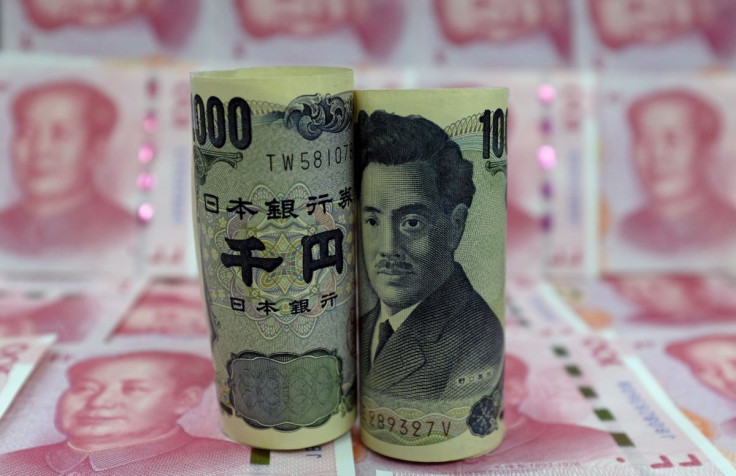Japan-China Tensions Over Taiwan Add Pressure On The Yen
Once upon a time, the Japanese yen rose by leaps and bounds, turning into a safe-haven currency next to the mighty U.S. dollar.
That was in the 1980s, when Japanese products dominated world markets, helping the country of the rising sun grow at a feverish pace. Some international observers talked about the Japanese miracle that served as an example for the rest of Asia. Others saw Japan replacing the U.S. in the world economic leadership.
But the roaring 1980s didn't roll over to the roaring 1990s. Instead, the Japanese economy entered into three decades of stagnation, which has lasted until this day. Meanwhile, the Japanese government launched scores of fiscal stimulus packages to re-ignite growth but without avail.
In addition, the Bank of Japan flooded financial markets with yen to cope with the deflation that accompanied economic stagnation. It's a policy the nation's bank continues to this day, though deflation has turned to inflation.
But that's hardly a good thing for the yen's value, which accelerated its descent in recent months. "The Japanese Yen has declined sharply since early March—it is at levels not seen in 20 years—because of a confluence of reasons including Bank of Japan's intervention to keep its 10-year bond yields at or below 0.25%, higher U.S. yields, slower global growth, higher energy and commodity prices, and peripheral fear that Japan might get embroiled in a war to protect Taiwan from China," says Michael Ashley Schulman, CFA Partner / Chief Investment Officer at Running Point Capital Advisors.
Meanwhile, Schulman thinks that the yen weakness reflects the weakness of the Japanese economic growth vis-a-vis the U.S. "Japan is much more dependent on global growth (which is slowing), and Japan is a net importer of energy and commodities and thus hurt by rising global prices of raw materials," he says.
Marcus Clarke, Founder of Searchant.co, thinks more macroeconomic factors are at play. "The recent drop in the value of the yen can be explained by considering the five macroeconomic dynamics that tend to influence exchange rates: Changes in the rate of economic growth that are relative to one another," he says. The yen's decline coincides with predictions that the Bank of Japan will be more cautious in tightening monetary policy than other central banks."
Then there are geopolitical factors like the rising tensions in the Taiwan Strait, which further undermine the yen's status as a safe-haven currency. "Although the yen is usually thought of as a flight-to-safety asset in times of risk or uncertainty, it has lost much of that safety luster since former Prime Minister Shinzo Abe last November began to publicly proclaim that Japan would not standby if China attacked Taiwan," adds Schulman.
Still, the sharp decline in the yen's value may not be that bad for the Japanese economy. It's making Japanese products more competitive in world markets, helping boost exports. But it may be bad for the regional economy, as it risks a currency war with China and South Korea which sell competing products on world markets.
And that "should be a concern for businesses with risk exposure anywhere in their supply chain," says Taulia's Head of APAC, Steve Scott.

© Copyright IBTimes 2024. All rights reserved.












